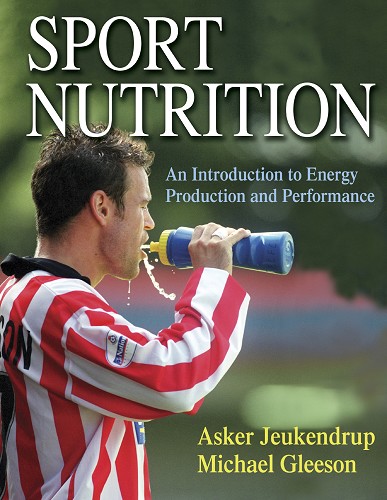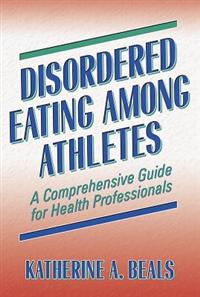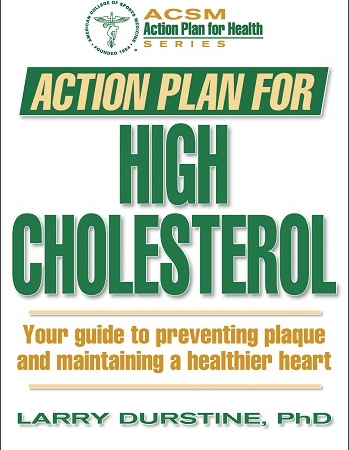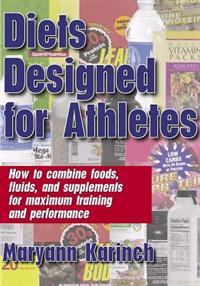Description
Sport Nutrition: An Introduction to Energy Production and Performance presents in-depth discussion of the science behind sport nutrition, sick including general principles, symptoms background, and rationale for current nutritional guidelines. Students will gain a solid understanding of the principles of nutrition as they relate specifically to sport. Students will also learn how to distinguish between fact and fallacy in the confusing world of sport nutrition and supplements.
The logical organization of the book helps instructors deliver a comprehensive introductory course in nutrition as well as reinforce comprehension, retention, and application for all students—including those without a science background. The following are some of the student-friendly features:
More than 200 tables and illustrations that demonstrate important concepts and research findings, making the text easy to understand at the introductory level
Summary appendix that explains the fundamental concepts of biochemistry, biology, chemistry, and physiology
Extensive glossary of terms and commonly used abbreviations
Numerous standard textbook elements, including learning objectives, key points, and key terms
A full chapter is devoted to how food is digested and absorbed, as well as how exercise influences the digestive process. Other topics include molecular structure, energy production, recovery after exercise, and the biochemical and physiological processes within the body.
Well-respected authors Asker Jeukendrup, PhD, and Michael Gleeson, PhD, are
on the cutting edge of sport nutrition. They draw from years of experience researching, publishing, and teaching at the university level and consulting with international sport teams. Sport Nutrition: An Introduction to Energy Production and Performance will help students learn the underlying principles of sport nutrition and its effect on performance.
About the Author
Asker E. Jeukendrup, PhD, is a recognized authority on exercise biochemistry and physiology and sport nutrition. He was an invited speaker and author delegate to the International Olympic Committee Sports Nutrition Consensus Conference in 2003. He has served as scientific adviser to the Rabobank professional cycling team, one of the top cycling teams in the world, and as nutrition consultant to U.K. Athletics and numerous Olympic athletes. More than 100 of his papers and book chapters have been published over the past 10 years. He is also the editor of the European Journal of Sport Science and a fellow of the American College of Sports Medicine.
Jeukendrup received his PhD in health sciences in 1997 in Maastricht, Netherlands, and is currently a senior lecturer in the school of sport and exercise sciences at the University of Birmingham in the United Kingdom. He was already an avid cyclist when he first entered the fields of exercise physiology and sport nutrition. In his work, he not only performs cutting-edge research but also translates his findings into terms that are useful for athletes. In his free time, Jeukendrup enjoys cycling, traveling, and competing in triathlons. He and his wife, Antoinette, live in Birmingham, England.
Michael Gleeson, PhD, is a professor of sport and exercise sciences at Loughborough University in Leicestershire, England. He has taught sport nutrition and worked with coaches and elite athletes for many years.
An active researcher in sport nutrition and exercise metabolism, Dr. Gleeson has published more than 150 papers in exercise physiology and sport nutrition over the past 20 years. He was an invited speaker and author delegate to the International Olympic Committee Sports Nutrition Consensus Conference in 2003. He is the editor of Exercise Immunology Review.
Dr. Gleeson is a fellow of the European College of Sports Sciences. He is a member of the American College of Sports Medicine (ACSM), Physiological Society, British Association of Sport and Exercise Sciences, and International Society for Exercise and Immunology. At the University of Central Lancashire Dr. Gleeson completed his PhD on the effects of diet and exercise on energy metabolism.
Table of Contents 424 pages
Chapter 1. General Principles of Nutrition
- The Function of Food
- Dietary Carbohydrate
- Dietary Lipids
- Dietary Protein
- Water
- Vitamins, Minerals, and Trace Elements
- Alcohol
- Essential Nutrients
- Assessing Nutrient and Energy Intake
- Analyzing Nutrient Intake
- Key Points
- Key Terms
- Recommended Readings
Chapter 2. Fuel Sources for Muscle and Exercise Metabolism
- Subcellular Structure and Mechanism of Force Generation in Skeletal Muscle
- Sources of Energy for Muscle Force Generation
- Fuel Stores in Skeletal Muscle
- Regulation of Energy Metabolism
- Metabolic Responses to Exercise
- Metabolic Adaptation to Exercise Training
- Key Points
- Key Terms
- Recommended Readings
Chapter 3. Energy
- What Is Energy?
- Energetic Efficiency
- Measuring the Energy Content of Food
- Measuring Energy Expenditure
- Components of Energy Expenditure
- Energy Balance
- Key Points
- Key Terms
- Recommended Readings
Chapter 4. Gastric Emptying, Digestion, and Absorption
- Anatomy of the Gastrointestinal Tract
- Regulation of the Gastrointestinal Tract
- Digestion
- Absorption
- Regulation of Gastric Emptying
- Gastrointestinal Problems
- Key Points
- Key Terms
- Recommended Readings
Chapter 5. Carbohydrate
- History
- Role of Carbohydrate
- Carbohydrate Before Exercise
- Carbohydrate During Exercise
- Carbohydrate After Exercise
- What Athletes Really Do
- Key Points
- Key Terms
- Recommended Readings
Chapter 6. Fat
- Fat Metabolism During Exercise
- Limits of Fat Oxidation
- Fat As a Fuel During Exercise
- Regulation of Carbohydrate and Fat Metabolism
- Fat Supplementation During Exercise
- Effect of Diet on Fat Metabolism and Performance
- Supplements That Increase Fat Oxidation
- Key Points
- Key Terms
- Recommended Readings
Chapter 7. Protein and Amino Acids
- Amino Acids
- Techniques to Study Protein and Amino Acid Metabolism
- Protein Requirements for Exercise
- Training and Protein Metabolism
- Effect of Protein Intake on Protein Synthesis
- Amino Acids As Ergogenic Aids
- Protein Intake and Health Risks
- Key Points
- Key Terms
- Recommended Readings
Chapter 8. Water Requirements and Fluid Balance
- Thermoregulation and Exercise in the Heat
- Effects of Dehydration on Exercise Performance
- Effects of Fluid Intake on Exercise Performance
- Daily Water Balance
- Fluid Requirements for Athletes
- Key Points
- Key Terms
- Recommended Readings
Chapter 9. The Micronutrients: Vitamins and Minerals
- Water-Soluble and Fat-Soluble Vitamins
- Macrominerals and Microminerals
- Micronutrients Form the Building Blocks of Tissues
- Micronutrients As Antioxidants
- Essential Functions of the Micronutrients
- Effects of Vitamins on Exercise Performance
- Ergogenic Effect of Mineral Supplementation
- Recommendations for Micronutrient Intake in Athletes
- Key Points
- Key Terms
- Recommended Readings
Chapter 10. Nutrition Supplements
- Nonregulation of Nutrition Supplements
- Critical Evaluation of Nutritional Supplements Studies
- A Detailed Look at Nutrition Supplements
- Contamination of Nutrition Supplements
- Key Points
- Key Terms
- Recommended Readings
Chapter 11. Weight Management
- Ideal Body Weight and Composition
- Weight Loss
- Making Weight and Rapid Weight Loss Strategies
- Key Points
- Key Terms
- Recommended Readings
Chapter 12. Eating Disorders in Athletes
- Types of Eating Disorders
- Prevalence of Eating Disorders in Athletes
- Risk Factors
- Effects of Eating Disorders on Sports Performance
- Effects of Eating Disorders on the Athlete’s Health
- Treatment and Prevention of Eating Disorders
- Key Points
- Key Terms
- Recommended Readings
Chapter 13. Nutrition and Immune Function in Athletes
- Functions of the Immune System and Its Cellular Components
- General Mechanism of the Immune Response
- Effects of Exercise on the Immune System
- Nutritional Manipulations to Decrease Immunodepression in Athletes
- Mechanisms of Nutritional Influences on Immune Function in Athletes
- Conclusions and Recommendations
- Key Points
- Key Terms
- Recommended Readings
Audiences
Textbook for undergraduate introductory sport nutrition, exercise physiology, and sport science courses; reference for sport nutritionists, nutritionists, dietitians, exercise and sport scientists, health and fitness instructors, physical educators, and coaches.





